'We can give a lot of the power back to the fans'
- Published
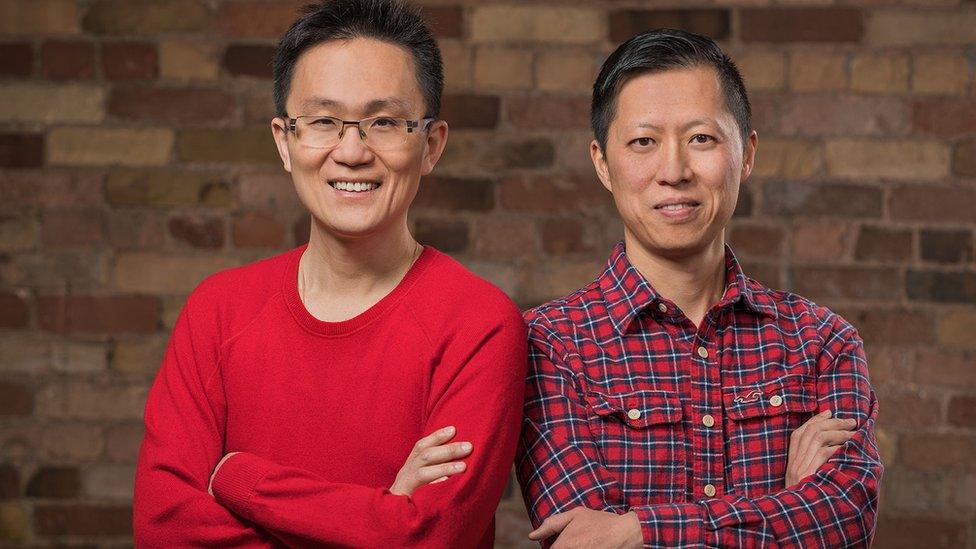
Wattpad founders Allen Lau (left) and Ivan Yuen set up the business in 2006
The BBC's weekly The Boss series profiles different business leaders from around the world. This week we speak to Allen Lau, co-founder and chief executive of global storytelling website and app Wattpad.
In the early days of his company, Allen Lau had a favourite evening pastime.
He would lurk on the online storytelling community he had developed along with co-founder Ivan Yuen, seeking out new writers.
Allen would regularly discover 10, maybe 20 writers he'd never seen before who were sharing their original work on Wattpad.
Then one evening: "I just kept on clicking, and it never ended. I kept bumping into new people," says the 51-year-old.
Not only were new writers flocking to the platform, but fans were interacting with their favourite authors. Allen knew something had clicked - a storytelling community was born.
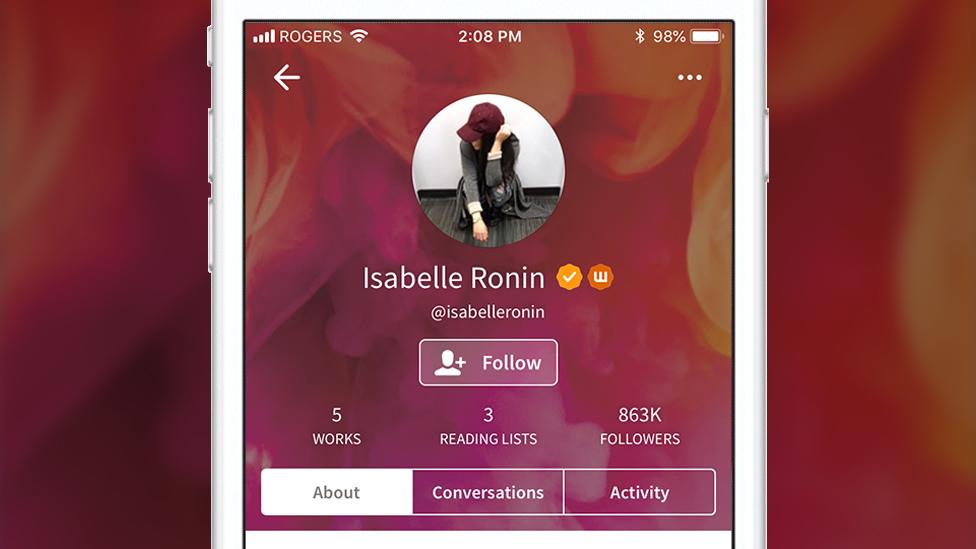
Users have profiles where they can publish works and create their own reading lists
Launched in 2006, Wattpad now has more than 80 million readers, and four million active writers on the site each month.
It is a global platform backed by more than $117m (£88m) from international investors in Asia, the US, and Canada.
With Wattpad's revenue streams ranging from in-story advertising, to a paid-for premium version, and branded and sponsored content, tech site Crunchbase estimates that the company's annual turnover is now more than $24m.
From the start, Allen and Ivan, 42, had big aspirations, but Wattpad's story isn't one of overnight success.
Hong Kong-born Allen moved to Canada in the late 1980s aged 19. He studied electrical engineering, and was hired by Microsoft, a job that wasn't the right fit for the young university graduate with an itch for entrepreneurship.
He left to work at a Canadian software start-up, which he witnessed "rocket ship" from about 100 employees to more than 700 in about three years, before it was snapped up by an American firm. For Allen, it was an instructional experience about the possibilities of success.
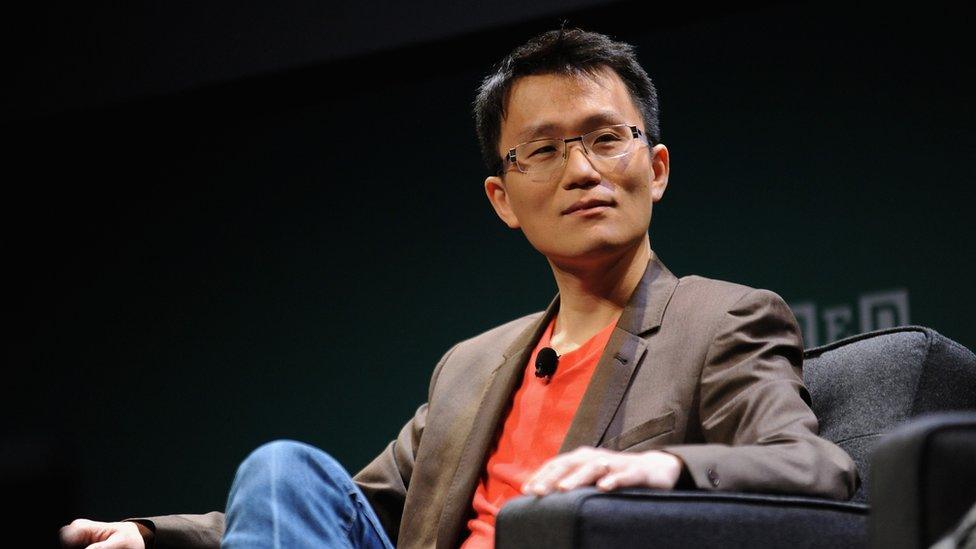
Allen Lau now wants to disrupt the wider entertainment industry
Ivan, also an engineer, was an early hire at Allen's first start-up, a mobile gaming company based in Toronto. Ivan later moved to Vancouver, but the pair kept in touch. One day Ivan sent Allen a message, wanting to show him a project he was tinkering with, a website where users could share original writing.
Allen, who has both a love of both reading and electronic gadgets, was already working on something similar, a way for people to read on the then popular Motorola Razr mobile phone.
"It didn't take long for us to decide 'let's do this together'," says Allen. The name they picked is a twist on the term e-book, with "watt" for electricity combined with "pad" where people can jot down ideas.
That was late 2006, the year Google bought video sharing site YouTube for $1.65bn.
Allen recalls thinking: "If YouTube can generate 40 million users from zero in a year, perhaps we could generate a few million. But in the end, it was only about 1,000. Clearly, it wasn't working."
They had launched the platform with thousands of public domain books, classics like Pride and Prejudice, as content to draw in readers. It wasn't the draw they hoped. Their Google ad revenue in 2007 was a meagre $2. In a word, early results were "depressing".
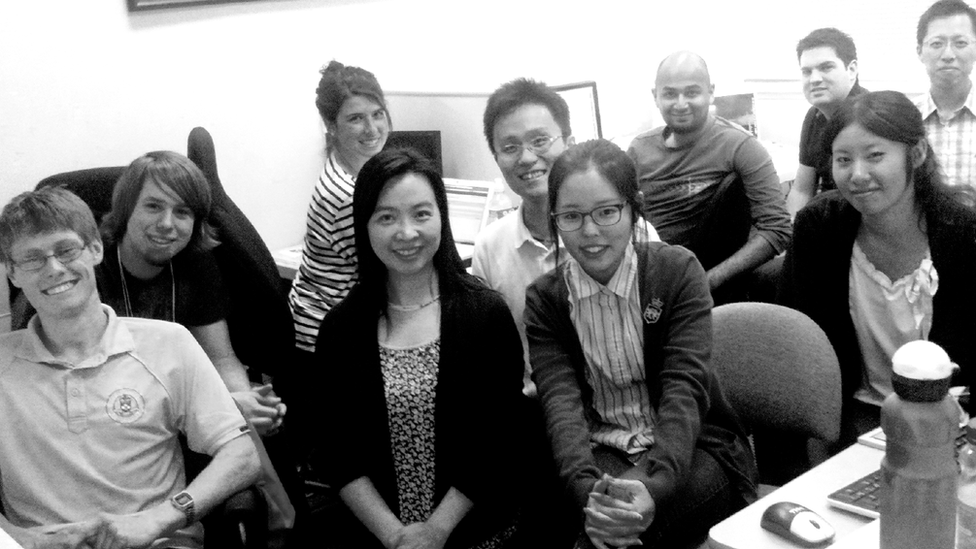
The company had just a handful of staff for the first few years
But the stars aligned for Wattpad with Apple's release of the iPhone, and the subsequent launch of its app store in 2008. Mobile text went from just about readable to user friendly almost overnight.
"If I had a crystal ball I probably would have started the company a year later than we did," says Allen. "But the good news is, it's always better to be early than late."
It was two years from Wattpad's launch that a user finally posted an original work to the site - a Victorian-era vampire novel called Blind Truths. Within 18 months of that first, the company had overcome what Allen called the "chicken and egg" problem: "Without content, we don't have any readers.

More The Boss, external features:

"Without any readers, no one would upload content. So we had to get the snowball rolling. But once the snowball was rolling, it just rolled faster and faster."
Both the platform's reach and community were a big draw. Creators can interact directly with fans and build an audience. And its support for multiple languages, from Vietnamese to Filipino, helped attract international users.
By 2011, the company had a million registered users, and the audience has continued to grow. In years since, some Wattpad authors have achieved massive commercial, if not always critical, success.
American Anna Todd became a literary phenomenon with her novel, After, written on her smartphone and released chapter by chapter.
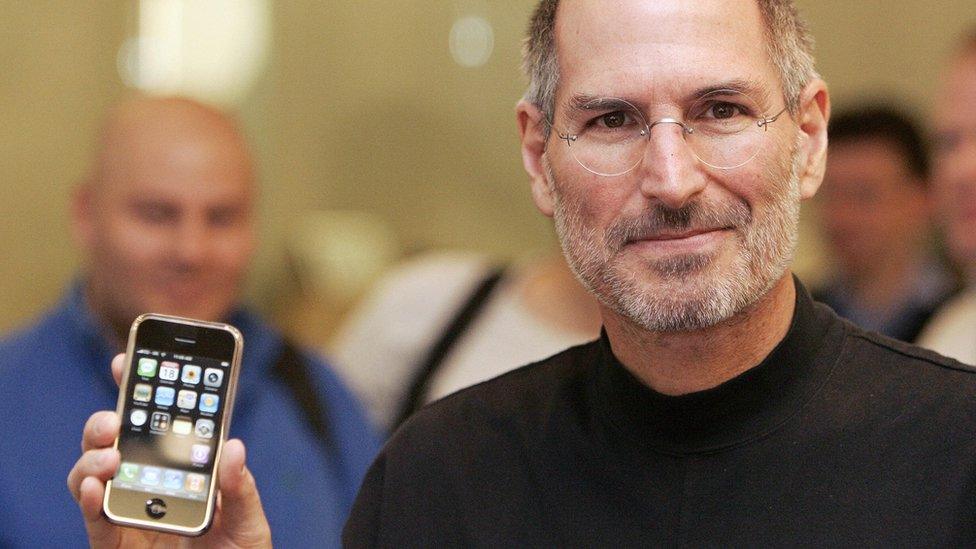
Apple's launch of the iPhone gave Wattpad a massive boost
It has now been read by more than 600 million Wattpad users, while the ensuing series has a total 1.5 billion reads to date - and scored the first-time author a publishing deal. A subsequent film adaptation was released in April 2019, and won a People's Choice Award in November.
Meanwhile, Beth Reekles, a British 17-year-old, had a runaway success with her rom-com novel The Kissing Booth. It was later published by Penguin Random House, and adapted for Netflix, becoming "one of the most-watched movies", external of 2018, according to the streaming giant.
Wattpad has now also moved into the broader entertainment space, collaborating with companies in North America, Europe, south-east Asia, and Latin America to bring the platform's most popular works to televisions and movie screens. It has also launched its own print publishing division.
Says Allen: "Once you have a million users there will be 100 ways to make money, once you have 100 million users there will be 10,000 ways to make money."
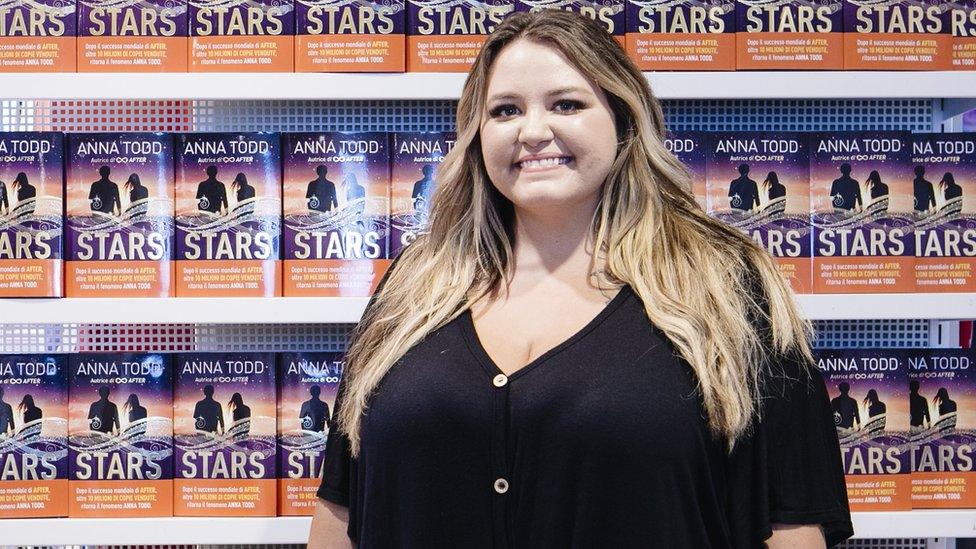
Anna Todd was an early breakout author who found success on Wattpad
To uncover emerging trends and discover which of the half a billion uploads that have been made to the platform could be best-sellers and blockbusters, Wattpad uses audience data and artificial intelligence algorithms, which deconstruct information as granular as sentence structure.
The company estimates thousands of writers, like Ms Todd and Ms Reekles, have made money on the platform. Wattpad has various ways for writers to monetise their output, including a recently launched programme that allows readers to directly pay select writers for their work.
Additionally, top writers have the opportunity to work on branded content, with firms like Coca-Cola and H&M interested in Wattpad's predominantly millennial and generation Z users. Then there's the possibility a writer could become the platform's next Anna Todd.
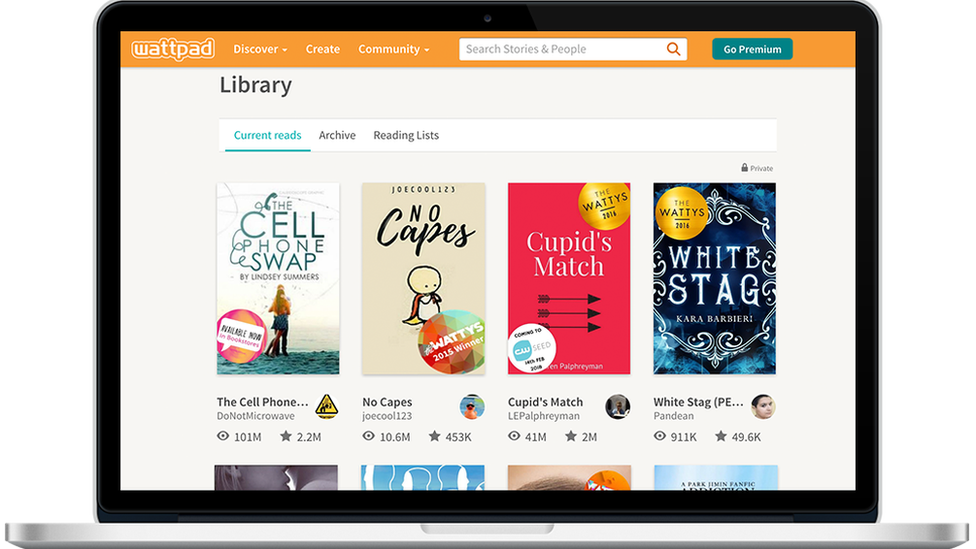
The Wattpad platform has an audience of about 80 million people
Lorraine Shanley, a publishing industry consultant, says "publishers have been fascinated by Wattpad and impressed by what they have done".
"Wattpad offers its writers different ways of monetising their own work so it doesn't look like they are taking advantage of their fans, it looks there is a courting and promoting of fans. That's a tightrope and they've done it very well."
Allen says that watching Wattpad authors have success is "very emotional". "We proved that we don't have to do things in a traditional way, we don't have to have a gatekeeper," he says.
"We can democratise the process. At the end we can give a lot of the power back to the fans."